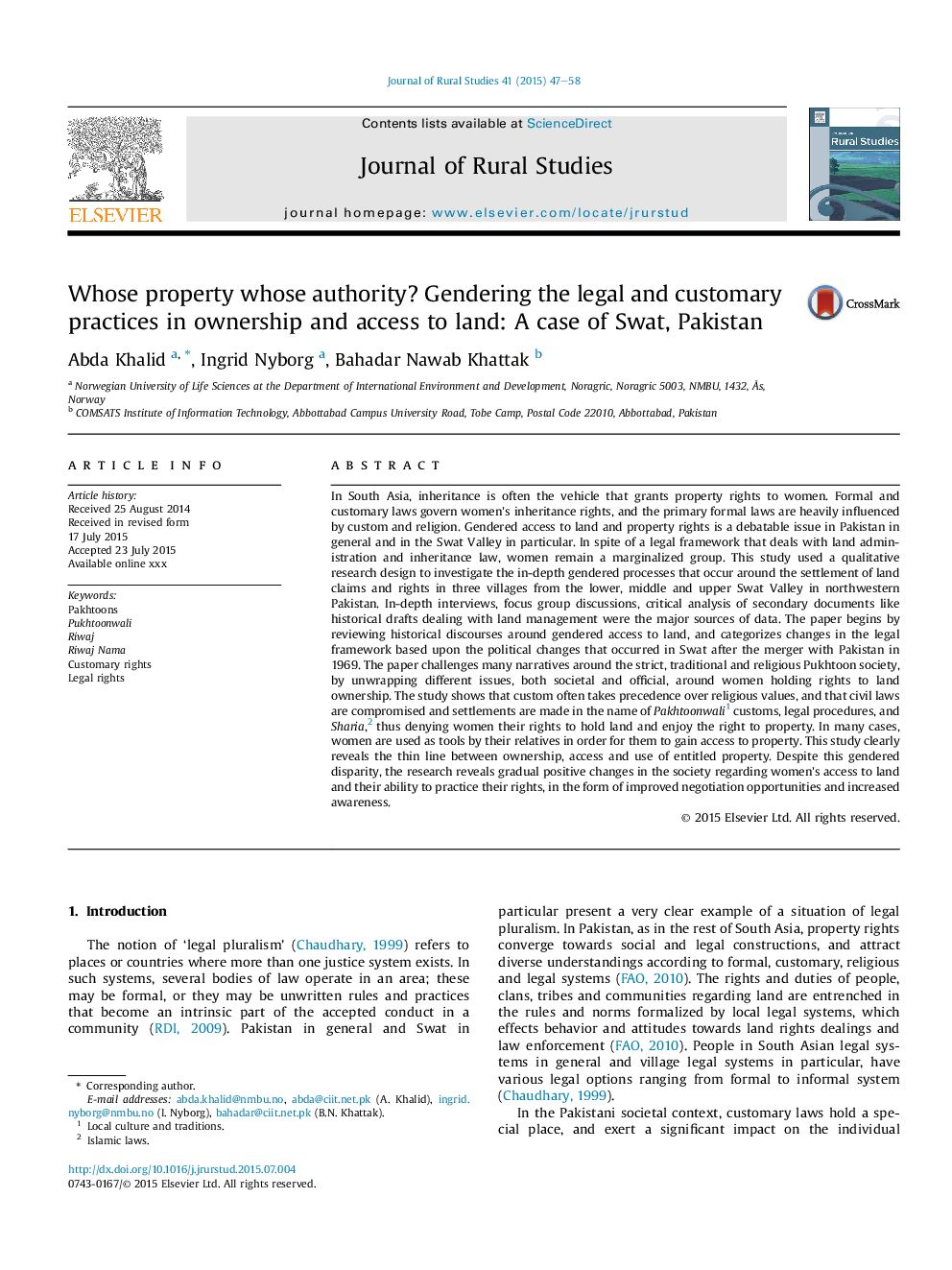| کد مقاله | کد نشریه | سال انتشار | مقاله انگلیسی | نسخه تمام متن |
|---|---|---|---|---|
| 6545602 | 159962 | 2015 | 12 صفحه PDF | دانلود رایگان |
عنوان انگلیسی مقاله ISI
Whose property whose authority? Gendering the legal and customary practices in ownership and access to land: A case of Swat, Pakistan
ترجمه فارسی عنوان
اموالی که مالکیت آن است؟ ارائه روش های قانونی و عادی در مالکیت و دسترسی به زمین: مورد سوات پاکستان
دانلود مقاله + سفارش ترجمه
دانلود مقاله ISI انگلیسی
رایگان برای ایرانیان
کلمات کلیدی
موضوعات مرتبط
علوم زیستی و بیوفناوری
علوم کشاورزی و بیولوژیک
جنگلداری
چکیده انگلیسی
In South Asia, inheritance is often the vehicle that grants property rights to women. Formal and customary laws govern women's inheritance rights, and the primary formal laws are heavily influenced by custom and religion. Gendered access to land and property rights is a debatable issue in Pakistan in general and in the Swat Valley in particular. In spite of a legal framework that deals with land administration and inheritance law, women remain a marginalized group. This study used a qualitative research design to investigate the in-depth gendered processes that occur around the settlement of land claims and rights in three villages from the lower, middle and upper Swat Valley in northwestern Pakistan. In-depth interviews, focus group discussions, critical analysis of secondary documents like historical drafts dealing with land management were the major sources of data. The paper begins by reviewing historical discourses around gendered access to land, and categorizes changes in the legal framework based upon the political changes that occurred in Swat after the merger with Pakistan in 1969. The paper challenges many narratives around the strict, traditional and religious Pukhtoon society, by unwrapping different issues, both societal and official, around women holding rights to land ownership. The study shows that custom often takes precedence over religious values, and that civil laws are compromised and settlements are made in the name of Pakhtoonwali1 customs, legal procedures, and Sharia,2 thus denying women their rights to hold land and enjoy the right to property. In many cases, women are used as tools by their relatives in order for them to gain access to property. This study clearly reveals the thin line between ownership, access and use of entitled property. Despite this gendered disparity, the research reveals gradual positive changes in the society regarding women's access to land and their ability to practice their rights, in the form of improved negotiation opportunities and increased awareness.
ناشر
Database: Elsevier - ScienceDirect (ساینس دایرکت)
Journal: Journal of Rural Studies - Volume 41, October 2015, Pages 47-58
Journal: Journal of Rural Studies - Volume 41, October 2015, Pages 47-58
نویسندگان
Abda Khalid, Ingrid Nyborg, Bahadar Nawab Khattak,
